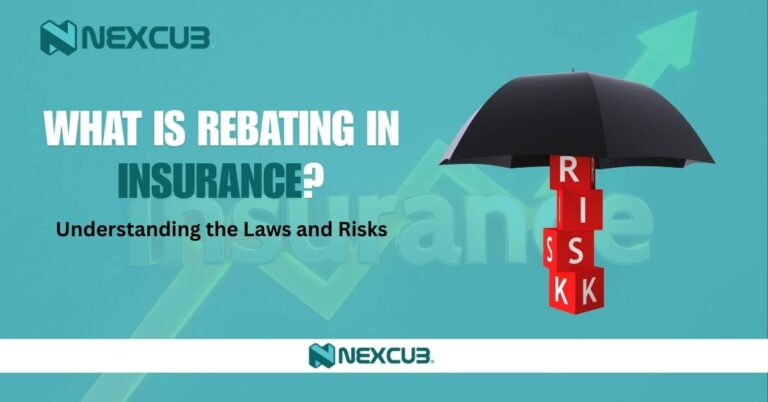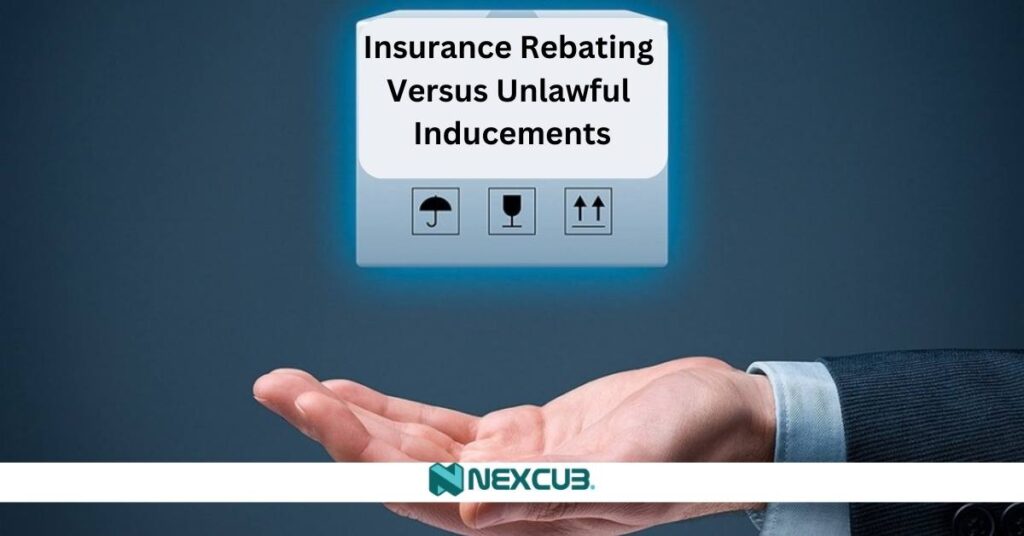Our Location
304 North Cardinal St.
Dorchester Center, MA 02124

Rebating in insurance is when an agent or company offers customers illegal perks, like cash or gifts, to entice them into buying a policy. While it might seem like a good deal, rebating is banned in most U.S. states because it disrupts fair competition and can harm consumers. Understanding this practice is crucial to avoid potential legal and financial risks.
Ever wonder why rebating in insurance is such a hot topic? Let’s break it down and uncover what it means for both buyers and agents!
Insurance rebating refers to when an agent offers part of their commission, cash, gifts, or other perks to clients as an incentive to buy a policy. While it might sound tempting, rebating in insurance is illegal in most U.S. states because it undermines fair competition and can lead to unethical practices.
These laws are designed to protect consumers and create a level playing field in the industry. However, some states allow certain forms of insurance rebates under strict guidelines. Both agents and buyers should stay informed about these rules to avoid hefty penalties or invalidated policies.
Insurance rebating often takes the form of agents offering clients perks to encourage them to buy a policy. Common examples include:
These examples are typically illegal because they bypass standard rules designed to keep competition fair and transparent.
While insurance rebating and unlawful inducements share similarities, they are not identical. Rebating specifically involves offering perks tied directly to the policy purchase. On the other hand, unlawful inducements often include unrelated gifts or services meant to sway a client’s decision.

For instance, promising a free vacation for signing a policy falls under inducements. Both practices are heavily regulated or outright banned in most states to maintain fairness and consumer trust.
In most U.S. states, rebating in insurance is illegal. Insurance laws strictly regulate how policies are sold, and offering unauthorized perks, like cash or gifts, is considered a violation. These laws are in place to ensure fair competition and protect consumers from misleading deals.
The NAIC Model Unfair Trade Practices Act serves as a guideline for many states to prohibit rebating practices. However, some states have relaxed rules allowing certain rebates under strict conditions, such as small value items or wellness incentives.
It’s essential to check your state’s laws, as penalties for illegal rebating can include fines, license suspension, or policy cancellation.
For Consumers: Always review the policy terms and be cautious of offers that seem too good to be true. Accepting illegal insurance rebates could risk your coverage. If something feels off, report it to your state’s insurance department.
For Agents: Stay informed about your state’s regulations on rebating in insurance. Avoid promising unauthorized perks to close deals, as this can lead to legal trouble and damage your reputation. Focus on providing value through ethical practices to attract and retain clients.
Rebating in insurance is illegal in most U.S. states to maintain fairness and protect consumers. When agents offer unauthorized perks like cash, discounts, or gifts, it creates an uneven playing field where larger companies or well-funded agents can outcompete smaller ones. This undermines healthy competition and can push smaller agencies out of the market.
Rebating laws also safeguard consumers from deceptive practices. Offers of “free perks” might seem appealing, but they can lead to untrustworthy policies or voided contracts. By banning insurance rebating, states ensure all clients are treated equally and pay the same rates approved by regulators.
Additionally, rebating disrupts the transparency of insurance pricing. Clients might end up choosing policies based on the perks rather than their actual coverage needs, which could lead to financial loss in the long run. These regulations are vital to maintaining ethical standards in the insurance industry.
Read: The How of Digital and Analytics in Insurance: Key Strategies for Success
Several laws and regulations govern insurance rebating to maintain fairness and transparency in the insurance industry. The NAIC Model Unfair Trade Practices Act serves as the foundation for rebating laws across most U.S. states. This act prohibits agents and brokers from offering unauthorized perks, like cash, gifts, or discounts, to incentivize policy purchases.
Each state tailors its regulations based on the NAIC model. For example, many states explicitly ban rebating under their insurance codes, imposing penalties like fines, license suspension, or even revocation for violations. The purpose of these laws is to ensure that premiums remain consistent, prevent unethical sales tactics, and protect consumers from misleading deals.
Agents and brokers must familiarize themselves with their state’s specific rules regarding rebating in insurance, as even minor violations can lead to severe consequences.
While rebating is generally prohibited, some exceptions exist depending on state laws.
The laws surrounding insurance rebating are evolving to meet the demands of modern consumers and industry practices. In some states, regulations are becoming more flexible, allowing limited forms of insurance rebates like small-value incentives tied to wellness programs or group policies.

For instance, offering gym memberships or discounts on health-related services is increasingly accepted in certain jurisdictions to promote healthier lifestyles.States are also reconsidering traditional rebating rules to adapt to shifting consumer expectations.
As clients look for more value from their policies, regulators may allow agents to offer specific perks while ensuring these practices remain fair and transparent. Despite these changes, the primary goal remains to prevent unethical competition and protect consumers.
Advances in technology are driving significant shifts in how rebating in insurance is regulated. Digital tools now let agents provide added value, such as free online resources, mobile apps, or personalized services, without breaching rebating laws.
Wearable devices like fitness trackers have also created new opportunities for exceptions. These gadgets, often tied to wellness programs, allow insurers to reward healthy behaviors while complying with regulations. As technology continues to innovate, insurance regulations must balance these advancements with fairness and consumer protection.
Understanding rebating in insurance is essential for both consumers and agents. While it may seem like a tempting offer, rebating is illegal in most states to ensure fair competition and protect policyholders. Staying informed about rebating laws and exceptions, such as wellness incentives or small-value items, helps avoid legal pitfalls. With evolving technology and regulations, the industry continues to adapt while prioritizing ethical practices. Always choose policies based on coverage quality, not unauthorized perks, to make the best financial decisions.
Abbreviations on your bank statement represent transaction types, such as ACH (Automated Clearing House), POS (Point of Sale), and ATM (Automated Teller Machine). These codes help categorize and track your banking activities.
Your bank statement shows all transactions, including deposits, withdrawals, transfers, purchases, fees, and interest earned. It also includes details like transaction dates, amounts, and descriptions.
To identify a bank charge, review the transaction description on your statement. If unclear, contact your bank or search online for the company name or code associated with the charge.
Common transactions include direct deposits, ATM withdrawals, debit card purchases, bill payments, transfers, and bank fees. Regular monthly charges like subscriptions may also appear.